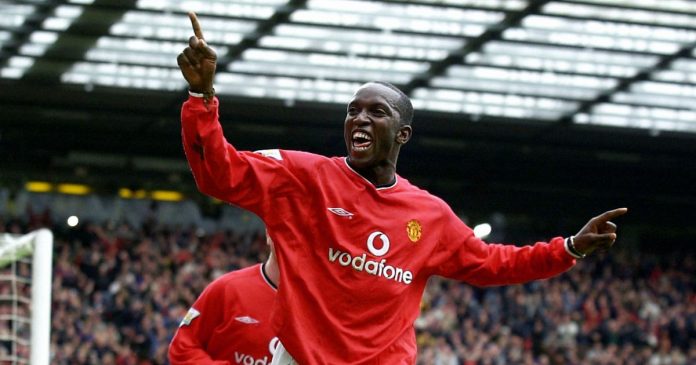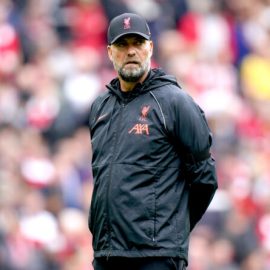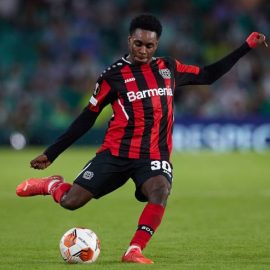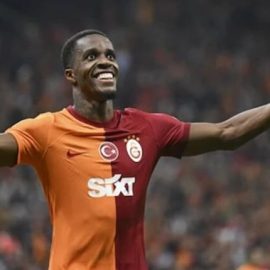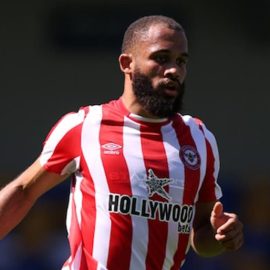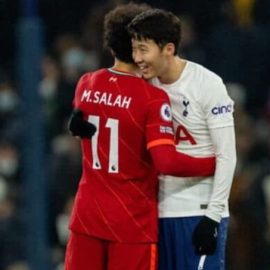As Liverpool slumped to yet another defeat, in this, the most wretched of seasons, their fans chanted the name of the man they want to replace Roy Hodgson. None other than Kenny Dalglish. However, the very fans chanting that name should be careful of what they wish for.
There is no denying; Liverpool FC has endured a brutal start to the season. 16 points after 13 games with a goal difference of -4 is not something that is generally equated with the once great club. Anfield has enjoyed nights where league campaigns were won and lost, it has seen some of the greatest European football nights of all time and has had some of the games greatest managers pound it’s touchlines as they screamed orders to sides brought up on trophies and professionalism of the highest order.
To see their side struggling so must be painful. It is hard to bear but it is the price the club must pay for 20 years of bad management at the highest level of the club.
Ever since Kenny Dalglish resigned on the 22nd of February 1991 the Reds have stumbled from one manager to the next. While they may have taken pleasure in some memorable cup wins during the last 19 years or so, they have never really come close to replicating the dynasty that was in days gone by.
The emergence of Tom Hicks and George Gillett in early 2007 had many Liverpool fans believing that those halcyon days were about to return. The club had just won the Champions League in 2005 and the FA Cup in 2006 under Rafael Benitez and was also expected to make its first concerted push for the title in some time. The news that Benitez would be given more funds to continue his early work was greeted with some cheer on the ranks of the Kop.
However, just three years later and Benitez would be parting company with the club after years of political in-fighting and seeing LFC drop out of the top four for the first time in years.
Certain sections of fans decried the removal of the Spaniard while others cheered, but one constant remained; Liverpool FC was in a financial mess.
Roy Hodgson was given the task of steadying the sinking ship and just a couple of weeks into his new job he found that he now had new masters to answer to in NESV and John Henry.
After taking home just six points from his first six games as manager there was little doubt that Roy Hodgson’s job was already coming under threat.
A 2-1 loss at home to relegation favourites Blackpool did not really help matter too much either.
However, NESV, upon taking over at LFC, announced that there would be no immediate changes made to the management structure of the club, ergo Hodgson’s job was safe for the time being.
The jury was still out on Hodgson but he had earned a reprieve. Kenny Dalglish’s name had already been chanted at more than one game this season and against Ian Holloway’s exciting Tangerines the call for the Scot was deafening.
Kopites patience with Hodgson was at a very low ebb after the Blackpool game but improved performances combined with wins against Chelsea, Napoli, Bolton, and Blackburn saw the club rise rapidly up the table.
However, a defeat and truly abysmal performance away to Stoke City on Saturday has heaped more pressure on the embattled ex-Fulham boss and once again, Liverpool fans chanted the name of Dalglish as the man they want to see in the hot seat.
There is a romantic factor for many Liverpool fans regarding Dalglish. To see the giant come to help the club in it’s time of need as well as see him in the dug-out one more time is almost too intoxicating a combination for many Reds fans.
King Kenny’s career as manager of the club is almost book-ended by two of Europe’s biggest footballing disasters.
Joe Fagan resigned as manager after the Heysel disaster in 1985 where 39 Juventus fans lost their lives after a wall collapsed on them during the European Cup Final. Then in 1989 the Hillsborough disaster struck the club badly as 96 fans lost their lives.
Dalglish, already a true legend of the club, further endeared himself to the people of Liverpool and Britain as a whole with the way he carried himself and the club with great dignity during the grief stricken days that followed.
Then in 1991 he resigned as manager after citing poor health as the main reason. Many felt that the burden of carrying the club through the aftermath of Hillsborough as being the main factor for wanting to take a break away from the game.
Just eight months later he returned to action as the commander in chief of Jack Walker’s Blackburn Rovers in the Second Division (Championship) and guided them back to the Premier League in his first season in charge.
Their rise to Premiership contenders was meteoric and had huge debts of thanks to Jack Walker’s millions. All of a sudden Blackburn was able to compete with the likes of Liverpool and Manchester United for the signature of players, none more significant than that of Alan Shearer’s after Dalglish paid an English record fee of £3.5 million for the striker.
The first season in the EPL (1992-93) Blackburn finished 4th, the following year (’93-’94) they finished 2nd and in 1995 they won the title.
The currency of Kenny Dalglish had never been higher. Strangely and almost immediately, Dalglish moved into the Director of Football role at the club and relinquished his first team duties to Ray Harford and the club never repeated the success they had enjoyed under the ex-Liverpool boss.
He resigned one year later after Alan Shearer was sold to Newcastle United for £15 million.
Dalglish followed Shearer to Newcastle in January 1997 after succeeding Kevin Keegan and did manage to guide the club to 2nd in his first season. However, Newcastle fans were used to seeing the attack minded football of their previous manager and almost immediately turned on the Scot for being too pragmatic.
His tactics were not helped by career threatening injuries to Alan Shearer and Dalglish only lasted until August 1998 before Newcastle decided that they had to part ways with the ex-Blackburn boss.
He returned to the Director of Football role with Celtic in 1999 and installed John Barnes as manager of the Glasgow club. However, after just a few short months it was apparent to everyone associated with the club that the ex-Liverpool winger was not up to the task. After six dreadful months for the club Barnes was sacked and Dalglish once again returned to the dug-out, guiding the Hoops to Scottish League Cup victory.
The writing was on the wall for Dalglish though. He was sacked as manager that summer and was replaced by Martin O’Neill and has not worked in football since.
It is now late 2010 and Dalglish has been away from the game for around 11 years. Football has changed much since he found himself on the touchline barking orders. Tactics have evolved incredibly, player and club finances have rocketed through the ceiling, and fitness science has moved onto another level entirely.
In short, the game is not the same one he left in 1999.
To be a manager or player you need desire. A certain masochistic love of the stress and strains that come with the job, an addiction to the pain it can cause, and an inherent desire to feel the ecstasy roll over you as you win an important match.
If Dalglish still felt the same way about the game he would have gotten back into it long before now.
That is where Liverpool’s fans problems lie. There is little doubt that the legend has un-told depths of knowledge about the game but does he has the true desire to force his way back into a game that has vastly changed since he was a manager?
During his time at Liverpool there is little doubt that the Reds played some of the best football ever seen, anywhere.
His side that won the double in 1986 are one of the, if not the, finest footballing teams ever assembled. They played the game beautifully, they were a side that could change their set-up in an instant, go from blinding attacks to trench warfare in the blink of an eye, they were almost impregnable at the back and possessed the finest midfield in European football up to the current Barcelona team and had a strike force that would put most teams to shame. Liverpool 1986 was the real deal.
They continued to play that way for the next couple of years but an aging side was left behind after he resigned in 1991 and the seeds for 2010 were sown there, by Dalglish, the succeeding manager, and most importantly the board.
Since then eight managers have walked through the Shankly Gates. Each with their own visions on how the game should be played. Every time a new boss came in, the set-up changed completely and the clubs policy changed with it, effectively making the club start from scratch with each new manager.
NESV have already employed Damien Comolli to try and insure continuity at the club going forward. Some would say that this is a vey wise move given the last 20 years at the club but only time will tell.
When Dalglish moved to Blackburn he employed a very direct style of play to suit his incredible SAS partnership of Chris Sutton and Alan Shearer. It worked perfectly as Rovers claimed the title in 1995 with one of the most modest league winning teams of all time. Blackburn 1995 was about as far removed from Liverpool 1986 as one could get.
The same pragmatic tactics were employed at Newcastle and Celtic before both jobs ended with him being sacked so do Liverpool fans only remember the glory days before 1991?
One would have to say they do.
Would Dalglish 2010 pick up where Dalglish 1986 left off? Given how he changed his philosophy on the game between 1986 and 1999 one would have to say no. Liverpool fans are dreaming.
Liverpool FC sits on a knife-edge at the moment.
They are six points off the last Champions League place and just three points off relegation. A sudden move could mean utter disaster for NESV and their plans for the club heading into the future.
There is little doubt that the club need massive strengthening to finish in the top four. For this season and maybe even next that possibility looks very distant, so NESV must lean towards the side of caution.
That means not making a rash move, even if it does mean Hodgson staying for longer than some Liverpool fans would want.
The ex-Fulham boss knows that the pressure is mounting at the club and reacted defiantly after losing 2-0 at Stoke.
“If the club decide they want to give the job to somebody else then I’ll have to accept it.”
“The fans can chant for whoever they want and it will be up to the club to decide what they want to do. (In reference to Dalglish)
“I can’t get upset every time the fans chant someone’s name. Fans make their frustrations felt every time we lose a game – but unfortunately they may have to do that a few more times this season, because I can’t see us winning every game.”
This is not what the fans of Liverpool FC want to hear.
Between the late ’60s and ’90s Liverpool was the dominating force in English football, but time has moved on and they no longer have the right to call themselves title challengers. For the next couple of years they must face up to the fact that NESV will probably downsize the operation considerably to steady the ship completely before moving onto stage two of their long term plans.
Bringing in a manager who has no experience over the last ten years is not something that NESV would seem willing to do.
For the moment Liverpool will have realised that they are nowhere near title challengers and that the squad that Roy Hodgson inherited from Rafael Benitez is severely lacking in depth and quality.
There is no guarantee that Kenny Dalglish would improve things at the club and given Henry’s propensity for working with statistics and in depth knowledge of the sports he manages. It would also seem that Liverpool fans calling for the Scot to return will continue to fall on deaf ears.
Dalglish is a true legend of the club. He is one of the greatest players to ever pull on a football jersey never mind a Liverpool one and is the last great manager of the club.
But Reds fans should beware of what they wish for. Sometimes they come true.
Add Sportslens to your Google News Feed!
